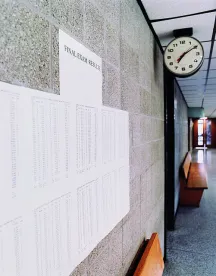In a decision of significance for campuses across the country, the U.S. Court of Appeals for the Eighth Circuit upheld a trial court ruling overturning the University of Iowa’s “deregistration” of a campus Christian group, calling the action by the institution “clearly unconstitutional.” In InterVarsity v. University of Iowa, the court reasoned that a campus “Policy on Human Rights” was unequally applied toward the named plaintiff, InterVarsity Christian Fellowship/USA (InterVarsity), and other religious organizations, leading to their deregistration.
At issue in the matter was a long-standing requirement by InterVarsity that individuals seeking leadership positions in the organization affirm their acceptance of a statement of faith. University officials deemed the InterVarsity’s affirmation requirement to be inconsistent with its policy prohibiting “differences in the treatment of persons because of race, creed, color, religion…or any other classification that deprives the person of consideration as an individual…” with respect to the institution’s programs (Policy on Human Rights).
Though the court reasoned that the university’s Policy on Human Rights was “reasonable and viewpoint neutral” as written, it had not been uniformly applied by the university in its review of InterVarsity and 37 other deregistered student groups. Specifically, the court voiced concern that fraternities and sororities had been exempted by the university from the requirements of the Policy on Human Rights and another student group, LoveWorks, had been allowed to retain a “gay-affirming statement of Christian faith,” even as InterVarsity was deregistered. As the court further reasoned, the university sought to prevent discrimination “by picking and choosing what discrimination was okay.”
The court offered specific guidance regarding the manner in which a policy like the one adopted by the University of Iowa might be evenly applied, suggesting that an institution could mandate that approved groups “allow any student to participate” or it might exempt religious groups from requirements.
The court further denied the claim by university administrators that they should be protected by qualified immunity, holding that the law is “clearly established that universities may not engage in viewpoint discrimination.” While this matter involved issues unique to a public university setting, the decision also serves as a reminder to private college leaders of potential threats stemming from allegations of discriminatory treatment made on behalf of student groups.




 />i
/>i
